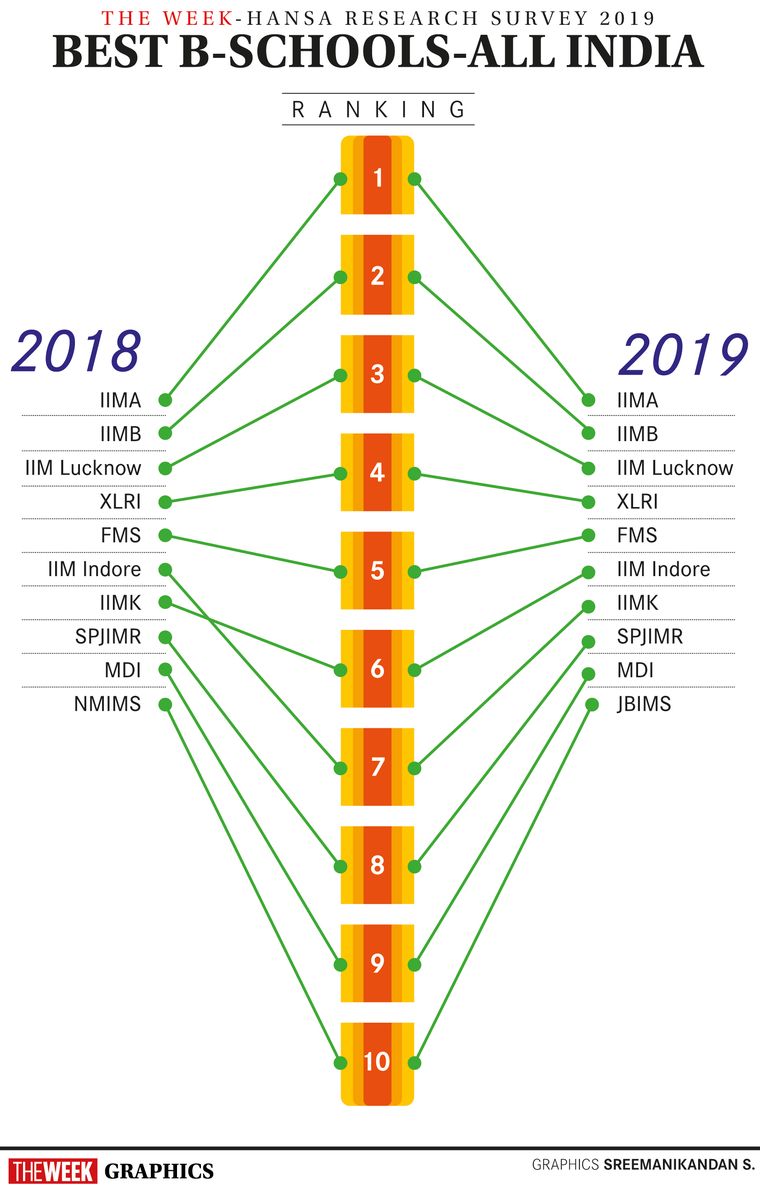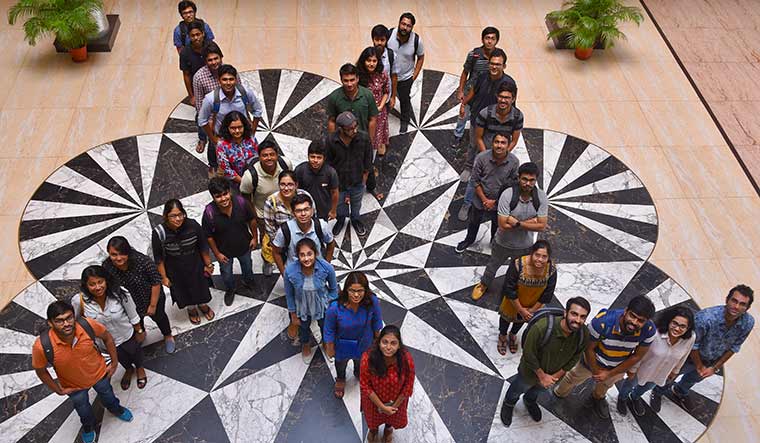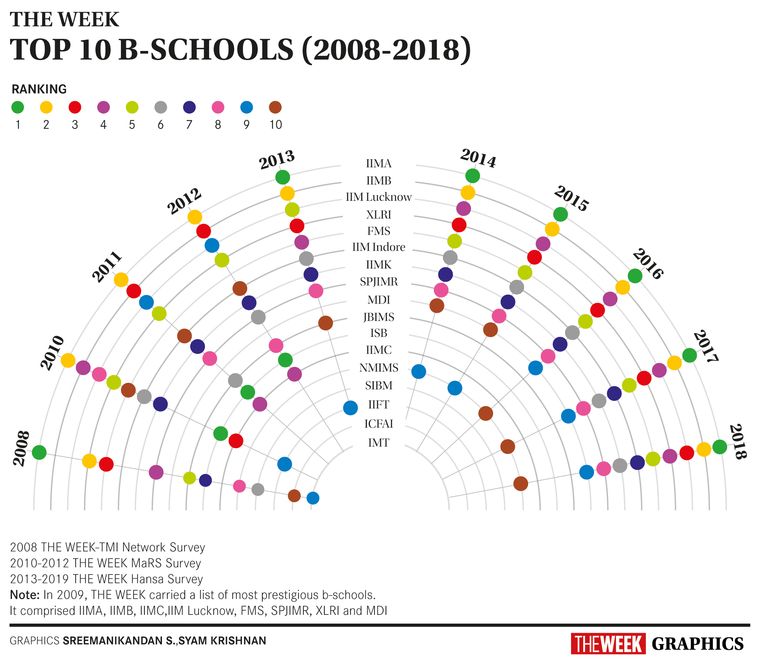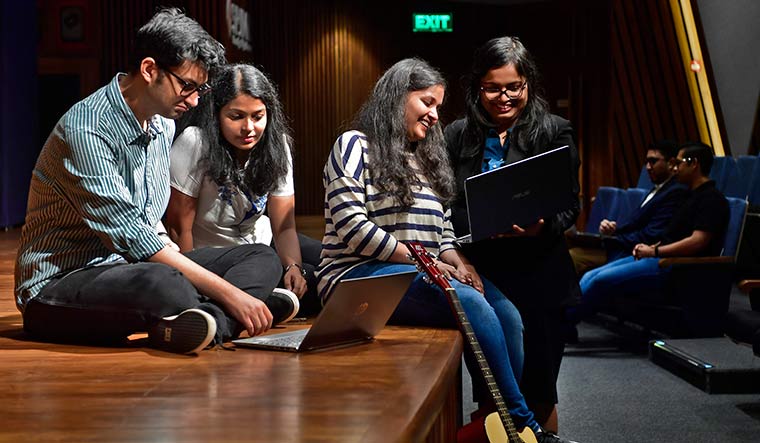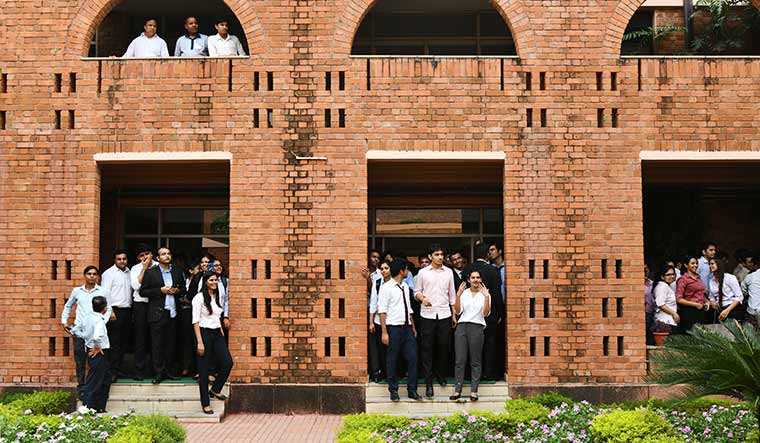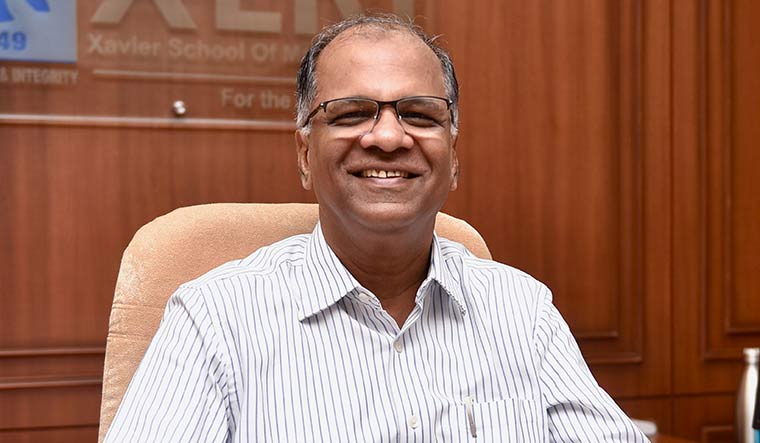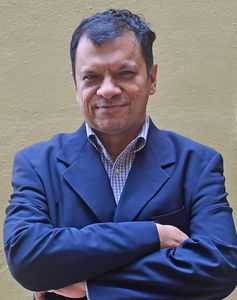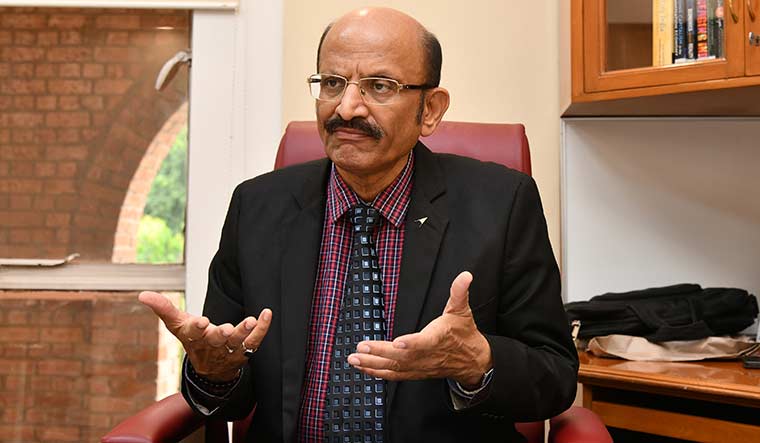The Boulevard Hotel, inaugurated in 1940, was the first privately owned hotel in Jamshedpur. During World War II, it was filled with pilots from the air force base close by. The Americans paid Rs1 and 4 annas per day for room and board. The British paid 14 annas as they had their own mess. This helped stabilise the hotel’s finances. The proprietors hoped that the post-war construction projects would see a boom in business for nearby Tata Steel, leading to full occupancy at the hotel. But things did not pan out that way; steelworks started picking up only in 1949. Around this time, a young Jesuit priest came from Maryland, US, to work in Jamshedpur.
Father Quinn Enright had been tasked, as all Jesuits are, with identifying and providing what the locality needed. Perhaps because of the proximity to the steelworks, Enright decided to club labour and management together. John D’Costa, owner of the Boulevard Hotel, was enthusiastic about this and offered him two rooms—No. 17 and No. 18. Thus, India’s first management school—Xavier Labour Relations Institute—started two years after independence, in a private hotel in a city built and run by a private company. It took a decade more for the Planning Commission to realise the importance of training managers, when it was proving difficult to find suitable personnel to manage the big public sector enterprises that were being set up in India. This led to the establishment of IIMs in Calcutta and Ahmedabad in 1961.
In THE WEEK-Hansa Research Best B-Schools Survey 2019, XLRI is ranked first among private institutes and fourth overall. It is also the only private school to be ranked among the top five in THE WEEK’s B-school survey every year since the first ranking in 2008 (see graphics on page 86). In the human resource development ministry’s national institutional ranking framework (NIRF), too, XLRI is the best private B-school in India.
John D’Costa’s son Ronald graduated from the institute in 1970. He says that XLRI carries the distinction of being the pioneer lightly. “The Excellers are softer people, sensitive humans,” says D’Costa, who worked for Hindustan Unilever and Reckitt & Colman and was part of the teams that launched brands such as Rin, Liril and Dettol soap. “This is an effect of the HR twin.”
The institute’s human resource programme, widely regarded as the best in the country, evolved from the courses for labour and management that Enright had envisioned. Professor M.G. Jomon, chairperson, postgraduate diploma in human resource management, at XLRI, says: “Earlier HR people used to come from courses such as MSW (master of social work). XLRI was the first institute in India that offered a programme focused on human resource management (HRM). Some of the professors were from the US and quality of education was high. Many students went on to do extremely well. Quite a few became HR heads, some became CEOs. XLRI’s reputation rose because of our alumni.”
Jomon says the next logical step for the programme is to become the best in the world. “For that, we should engage in cutting-edge research in HRM,” he says. Professor A.K. Pani, dean (academics), XLRI, says that the reason the HR course is strong is because of the depth it offers. “When HR is offered as a specialisation, normally there are around five [to 10 courses],” he says. “Here, HR students do 30 courses specific to the subject. For example, most B-schools do not teach law. We have six courses in law.” He adds that since HRM is XLRI’s flagship programme, they are also looking at ways to integrate new technologies like blockchain into HRM.
In fact, the increased focus on the use of data for decision making is a global trend in management education, irrespective of focus area or specialisation, says Pani. “Industry is looking for those skills and they are also getting involved in the training,” he says. Courses in business analytics are touted to be the next big thing in management education, and demand for professionals with a thorough understanding of analytics has soared (see guest column on page 100). Apart from taking stock of major shifts in the industry, it is also imperative to update the curriculum regularly. “[Some] universities modify the curriculum only every five to 10 years,” says Pani. “For management schools, it has to be every year. At XLRI, we have an industry advisory board, where our faculty have regular discussions with industry experts to update the curriculum. Once we design a course, we send the revised course curriculum to faculty members at world renowned B-schools, like Harvard. They will comment on that and we make revisions based on their comments.” Father P. Christie, director, XLRI, says: “For every B-school, it is a challenge to meet the rapidly changing needs of the industry. The success of any B-school is how best it makes itself relevant.”
Constantly staying on top of changes in the business world is no easy task and students, too, feel the heat. Jerry John, 25, from Bhopal, is a second year student in the PGDM (business management) programme. A BTech in electronics and communication from NIT, Patna, he worked at Bosch for two years before joining XLRI. “The professors here are knowledgable and approachable,” he says. “But the curriculum is a little hectic. In the initial two-three weeks, it was difficult to adjust to the academic rigour. But once we get into the flow, there are lots of group projects and multiple activities, which help us get a holistic view of how the curriculum is designed. It helps us learn better.”
Gayathri S., 22, from Chennai, is a first year student in the business management (BM) programme. The graduate in maths and physics from the Chennai Mathematical Institute says that things are a lot faster in a B-school. “The transition was very difficult for me,” says Gayathri. “In areas like accounting or economics, I had to acquaint myself with a lot of information very fast. But, in quantitative techniques, I was a lot better off. So, ultimately it is a level playing field.” She emphasises that the “culture” at XLRI is helpful and enabling. “There is a lot of unity,” she says. “It is academically rigourous, but we are all very supportive.” She attributes the development of this support system to the week-long initiation programme. “We were given a lot of group activities where we could bond with each other. That helped a lot because we knew each other before the courses even started.”
Sasanka Kireeti, 25, from Hyderabad, who graduated in manufacturing engineering from BITS Pilani, is a second year student in the HRM programme. He says that his summer internship with Asian Paints was a great learning experience. “During our case studies, we had come across Asian Paints dealing with labour and bringing in best practices,” he says. “So, I thought I was prepared when I went. But, they were more advanced than I expected and it took a lot of collaboration with faculty, seniors and the leadership there for me to figure out my project.”
Sasanka and many other second year students THE WEEK met already had pre-placement offers (PPOs) after their summer internships. Is the economic slowdown affecting placements at all? Rajiv Misra, placements chairperson, XLRI, says: “As of now, we have not had those signals that there would be a lull.” In 2018, students getting placed after the PGDM(BM) programme had an average salary of Rs21.5 lakh per annum and a maximum of Rs52.25 lakh. The PGDM(HRM) programme had an average of Rs18.6 lakh and a maximum of Rs38.5 lakh. The fee for both the two-year courses is Rs20.5 lakh.
While the salaries are seen as return on investment and placements are, therefore, the primary concern for aspiring students, that may not be the right way to approach a management programme. “The growing expectations of the students are a challenge,” says Christie. “It is all placement-driven. Why do they come here, or IIMA or IIMB or IIMC? It is not that they get a better learning environment or curriculum. All that is more theoretical, given that it gets them a better placement. Which is not very helpful to us in the selection of the candidate and also in imparting the right knowledge.”
Competing with the very best in the field is a guaranteed way to stay sharp and to excel. But private institutes competing with the government’s institutions of national importance may find that they are not on a level playing field. “Post the IIM Bill [2017], the main challenge that we face is that even a new IIM can award a degree or doctorate,” says Christie. “ Ours is the oldest B-school in India, with such reputation. But we are still not allowed to award degrees. For PGDM, we get MBA-equivalence certificate. But for our fellow programme, we still do not get PhD equivalence. So unless the top private B-schools are also given the same degree-granting status as IIMs, it is going to be difficult for us from a stakeholder perspective.”
Ranjan Banerjee, dean, S.P. Jain Institute of Management and Research (SPJIMR), Mumbai, does not seem too worried about the IIMs being allowed to award degrees. “The PGDM has been around for a long time,” he says. “For recruiters it does not seem to matter. Our PGDM is recognised as an MBA equivalent internationally.” He adds: “AICTE is going to create something called tier-1, where the top private institutes will get some additional autonomy. I think that will resolve the problem for the top institutes. I do not think this problem will affect [institutes like] SPJIMR and XLRI that much. I think it will affect the institutes ranked 30 and below.”
SPJIMR is second among private schools in THE WEEK-Hansa survey and has been ranked eighth overall. It is a position the institute has maintained since 2013. In the NIRF ranking, it is the third-best private school. Banerjee says there are many factors that allow SPJIMR to consistently compete with the IIMs and stay in the top tier of Indian B-schools. “We have a strong degree of industry integration,” he says. “Where an IIM will recruit only PhDs, we will also recruit senior corporate executives, who after 20 years in the industry want to do something different. Many of them join us as full-time faculty and then do PhD. Being in Mumbai also helps us in industry interaction.” These factors, he says, ensure that what is taught is current.
The second thing that Banerjee emphasises is the importance attached to values. “We have two rounds of interviews,” he says. “The first round is for depth, the second round is purely for values. Because we not only want to see what you are saying, we also want to see how you are reacting to what others are saying. So, are you a team player? Do you listen well under stress?” He adds that all SPJIMR students mentor an underprivileged student. And through this, they learn empathy and develop a sense of urban poverty.
SPJIMR has also been known for being innovative—courses such as the management programme for women returning to work after a break and family-managed business programmes come to mind. But perhaps the most noteworthy differentiator in comparison with other top B-schools is the autumn internship. Instead of going for internships the summer after the first year, the students do it in the autumn of the second year. So, what is different, apart from the weather? The process commonly followed for summer internships does not give students the time to learn much from their course because it happens just a few months into the first year, says Abbasali Gabula, associate director, external relations, SPJIMR. “Here, after the first year, students do a rural internship with an NGO,” he says. “This creates an opportunity for them to be sensitised to rural India.”
The first year students seemed excited about rural internships, having heard much about it from their seniors (who were away on their autumn internships). Shivam Kansal, 21, from Delhi, who has a BCom from Ramjas College, says, “We go inside a village and identify the opportunities we can create. That, too, for socially marginalised sections of the society. So, it is very interesting to create a business model for them that is socially sustainable. If one person from SPIJMR is able to impact even five or six people in a village, I think that creates a ripple. And if a batch of 240 is doing this every year, I think that differentiates us from other B-schools.”
After they return from their rural internship, the students go into specialisations and then go for an international immersion programme in a globally top ranked B-school. This is followed by the autumn internship. Gabula, who is in charge of placements, says: “When the interviewer comes, they see a person who has passed through all these stages.” The other advantage, he adds, is that there are no students from other institutes during the internship. “So our students get extra attention,” he says. About 35 per cent to 40 per cent get PPOs, according to Gabula. SPJIMR’s 2019 placement report for the two-year PGDM programme shows an average salary of Rs22.90 lakh per annum. The course fee for the 2019-2021 batch for Indian students is Rs17.5 lakh (excluding cost of travel, boarding, lodging, visa, insurance and incidentals for the international immersion programme). Gabula says that the institute did not face any problems in autumn placements because of the economic slowdown. “We are already getting confirmations for final placements,” he says. “There are some red flags in some places, like delays in hiring decisions, but these are few in number.”
Whether these red flags develop into something more worrisome can only be evaluated over the next couple of years. After all, pundits across the spectrum—from former RBI governor Raghuram Rajan to IMF Chief Economist Gita Gopinath to Nobel laureate Abhijit Banerjee—have expressed deep concern about the state of the Indian economy. The World Bank has cut India’s growth projection to 6 per cent in a climate of slowdown. In the west, the MBA degree has been de-glamourised and high-ranking B-schools in the US have reported a decline in applications. But, for now, the negative economic churn in the outside world does not seem to have ruffled placement prospects in premier B-schools.
Nowhere was this perhaps more evident than at Management Development Institute, Gurugram. On October 1, when THE WEEK visited the campus, it was the first day of summer placements for first year students of the postgraduate programme in management (PGPM), MDI’s flagship offering. But instead of running into anxious, nail-biting faces, one could only see students eagerly scurrying around to step up ‘logistics’ [read dholaks and ladoos] for a victory march in the evening. “We have completed 100 per cent [summer] placements on the first day,” says Ramprasad Murali, 23, from Bengaluru, a second year PGPM student. “The victory march is a college tradition to celebrate this achievement.” Murali, who did his internship with Bennett Coleman and Co Ltd last year has received a PPO. He adds that the average stipend for the two-month internships have increased by 10 per cent to Rs2.3 lakh this year. The average CTC (cost to company) offered for final placements grew by 5 per cent in comparison with last year to reach Rs20.13 lakh per annum. The fee for the 2020-2022 batch is Rs21.34 lakh.
The reason the economic slowdown does not seem to have affected premier B-schools is that the industry’s demand for a particular kind of skilled mindset is still there, says Professor Atmanand, who was the director (additional charge) of MDI until the second week of October. He is now the director of MDI Murshidabad. “The key to competition in management education is innovation,” says Atmanand, who uses only one name. “Worldwide, in fact, the focus of the companies is more on research; they want to hire a student who has specialised knowledge in a particular field. Be it artificial intelligence, machine learning, business analytics, fintech, energy or public policy.” MDI offers electives in most of these subjects now. In 2005, it launched a full-time School of Energy Management in association with the ministry of power and USAID (United States Agency for International Development). MDI also signed a memorandum of understanding with the Haryana Institute of Public Administration in January for imparting and enhancing professional knowledge and skills in public policy administration.
“The lifecycle of the traditional curriculum of management eduction is very short. It has reached a saturation point,” says Atmanand. “We are the best and will get better in the years to come. My ambition is to become the No. 1 management institute in the country.” MDI is in the process of drafting a strategy paper within its faculty council to secure this goal in five- and 10-year visions. In this year’s THE WEEK-Hansa survey, MDI is third best among private b-schools and is ranked ninth overall and. It has finished ninth or tenth in THE WEEK’s survey since 2014. In NIRF rankings, MDI is the second best private B-school.
Students at MDI have full confidence in the institute and attest to the quality of its training. Market upheavals or gender pay gap in big firms are faraway concerns here. Jobs in sales and operations, usually male-dominated, are being increasingly lapped up by women. In their HR program, they have a 3:2 male to female ratio, so more men are doing HR courses contrary to popular perception (read our story on the closing gender gap in management education on page 94). “If you do not want a normal corporate job, MDI actually trains you, gives you the network and the platform to venture out and align your thought process with industry needs and prepares you for what is required to be an entrepreneur,” says Rahul Bhalla, 25, from Hyderabad, a student in the postgraduate programme in international management. He will complete one year of his dual degree in Paris at ESCP-Europe. This year MDI launched its Incubation Lab for Entrepreneurship. This is the institute’s way of telling students to become self-starters. B-schools cannot always be about securing jobs, after all.
—With Sneha Bhura



